Male feminists: The men dedicated to improving women’s lives
Women may have started the feminist fight but many men are just as passionate. Meet three men dedicating their work to improving the lives of women.
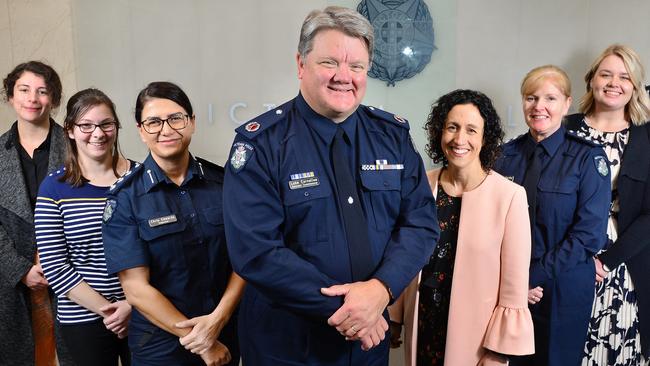
VIC News
Don't miss out on the headlines from VIC News. Followed categories will be added to My News.
LUKE CORNELIUS
There are at least two moments in Luke Cornelius’ life when he believes he failed.
The first was when his daughter Alexandra was four and was told she didn’t have the right body shape to pursue ballet, a hobby she loved. He was annoyed but didn’t object to the teacher.
The second happened when Alexandra was eight and the Auskick footy team she had loved playing in for three years couldn’t accommodate a girls’ team so she was advised to play netball instead.
“If your daughter’s ballet teacher says she’s not small enough, are you going to let your daughter down by saying nothing as I did or stand up for her and ask why not?” Cornelius says.
“Or ask ‘Why don’t you give my daughter a fair go?’ at the footy and say you’re going to make a difference rather than just accept it.
“Those instances represent points of failure for me as a father. Every single man in our community would be able to identify similar points where they had an opportunity to make a difference to the women in their lives. If they don’t stand up, we’ll continue to have a community that doesn’t stand up for women.”
Yet, it was a moment he shared with Alexandra, now 17, four years ago that changed the course of his professional career and went on to improve the lives of so many women.
He joined Victoria Police 30 years ago, gradually rising through the ranks. He and Alexandra were watching a TV documentary on family violence when she burst into tears. He asked her what was wrong and she named one of her school friends who was going through the same situation and she asked if she could be a police officer and work in that field.
It was a confronting moment for Cornelius, realising his daughter could face discrimination both within the police force and in the wider community if she was working as a police officer.
“I realised I was a senior person in policing and needed to step up and do everything I could to address what I had long known but, to be honest, had never given much thought to,” Cornelius says.
“I had to look at the way the policing profession treats women.”
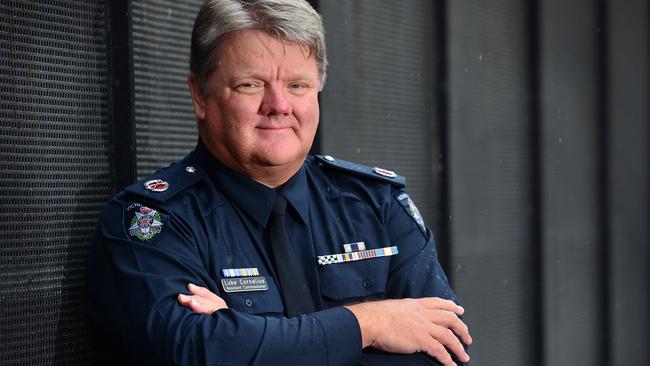
He had been the Assistant Commissioner in the southern metro region for five years but saw he had a great chance to work on the review into sex discrimination and harassment in Victoria Police that had been commissioned by former chief commissioner Ken Lay.
During his five years in the role, he has done a lot to improve conditions for women working at Victoria Police and been an outspoken agitator against domestic violence.
He is not one to stand up and preach. Instead, he wants to take people along the path to change and it begins with understanding the cause of violence against women.
While accepting the vast majority of men are not violent towards women, there’s no denying that 40-60 per cent of the cases police respond to are related to family violence.
“Our community is only going to change if men challenge themselves to reflect on their role in our community,” Cornelius says.
“The things we do and take for granted perpetuates the social and cultural norms that continues to allow that small number of men to be violent with women who aren’t doing what they want them to do.”
He openly says that his own wife, Julia, has been reprogramming him from a position of male privilege for 30 years, and he knows that he hasn’t had the same blocks placed in the way of his son Peter, 11.
“Every man has a choice to make when women challenge them about what they have said,” he says.
“They can get huffy about it or maybe they need to rethink their position to become a better man and I can tell you I’ve never known a wolf whistle or a cat call to be the start of a beautiful relationship.
“Think about the impact you’re having on women in our community. Help women to feel more safe. Think about what we do as fathers and husbands to discriminate against the women in our lives on a daily basis and think about what we say to our sons, how we engage our sons in terms of their thinking and whether they have respectful relations with girls in playgrounds.
“As they become young men, ensure they have a dignity and respect when developing relations with women and for men, absolutely clearly understanding that women are not an object or a means to an end. They are human beings and respectful relations is the basis on which we all should relate.”
He is proud to have helped improve the culture at Victoria Police so that it is now a place where his daughter could work more happily, even though she now aspires to be a physiotherapist.
There is parental leave, a formal role-model system in place to help shape more safe and inclusive workplaces, and there is an aspiration to achieve a 50/50 gender split in the workplace.
“Being preachy doesn’t work and neither does standing up in front of people wagging your finger,” he says.
“It’s about helping people understand they need to change.”
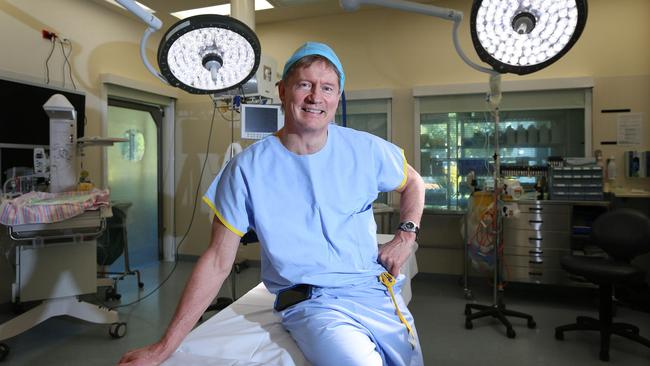
DR RAY HODGSON
There are many reasons why Dr Ray Hodgson might be negative about the plight of women in Nepal.
Since he started visiting in 2011 to treat women suffering genital prolapse — which happens in Nepal more than any other country in the world — he has faced his own doubts about whether to proceed.
“We’re still not at equity here in Australia but it’s a different playing field altogether in Nepal,” the gynaecology surgeon says.
“There is so much about the culture there that’s generous, serene and mystical and they’re such gentle, beautiful people, but there is a dark side to the culture and that is the patriarchal culture where women do not have a voice.
“As a result, they suffer in so many ways.”
Hodgson (pictured below) was working in his clinic 12 years ago when he saw a patient who had done a thesis on genital prolapse in Nepal. He thought it was interesting and the patient was surprised he didn’t realise what a massive problem the condition was in that part of the world.
In rural Nepal, 25-35 per cent of women suffer genital prolapse and 45 per cent are aged under 24. In Australia, the prevalence of genital prolapse is 8-9 per cent but most sufferers here are at least 40.
The Geelong-born specialist wanted to offer his services on a volunteer basis but discovered there wasn’t a medical organisation operating in Nepal. He was already volunteering with Equal Health where he provided medical assistance to underprivileged people in southern India and had earlier worked in Thailand, providing medical aid to orphans of parents who died suffering HIV-AIDS.
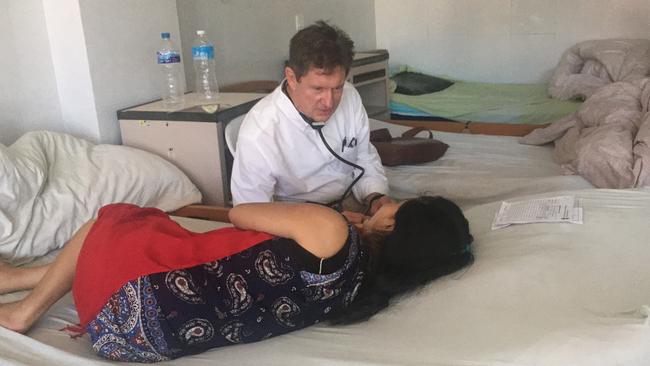
But he thought his training — and his wider calling — was to help women in particular.
“When I first started going to Nepal, I realised lots of mums and babies were dying from pregnancy-related events so I decided to expand on the prolapse work to help address the huge problem of deaths there, with a mother dying every four hours and a baby dying every 20 minutes,” he says.
“But then I thought, ‘We need a hospital’.
“Then the earthquake came in 2015 and put a stop to all our plans. Just yesterday we finally procured the land to build a hospital for mothers and babies because I want to teach the local doctors and nurses.
“The whole top floor of this hospital will be for teaching. The staff there are so appreciative.”
So are the women. In Nepal, 37 per cent of girls marry before turning 18 and 10 per cent marry before they’re 15 so are usually very young when they have their first child. Although they can’t legally marry until they’re 20, the laws are not widely enforced in rural areas.
Those young women go on to have several children, typically three, close together and are still expected to work hard physically throughout their pregnancies, lifting heavy weights on the farm. They also do not eat a lot of protein in their diets.
More research is needed to understand why prolapse is so common. The symptoms are debilitating and sufferers are often treated as outcasts because they can be incontinent, malodorous, unable to have sex and are in pain.
“There are times when it’s really hard working there because we have to bight our tongues so much,” he says.
“The men have much better access to medical care and there’s a substantial number who are not very nice at all to their wives, especially if the women can’t help them work on the farm because they’re in such pain.
“(But) there’s an operation we need to do that takes two to three hours and what makes it all worthwhile is that, after the operation, we can transform a woman’s life, stop her incontinence, take her pain away and get her dignity back. Then I see her eyes light up.
“They’re in their 20s when they come to me and have another 50 years to live. For such a small investment in time, there’s a massive reward.”
Dr Ray Hodgson’s book, Heartbreak in the Himalayas (RRP $33), about his experiences in Nepal, is out now, with proceeds aiding the hospital. A4WH.org
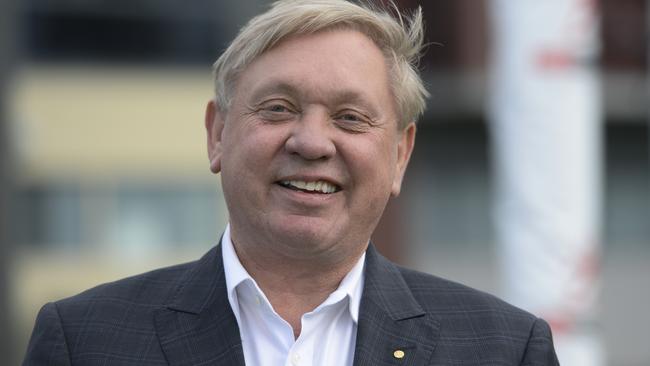
PAUL WHEELTON
When Paul Wheelton graduated from university his father took him out to a Chinese restaurant to celebrate.
He was 23 and the dinner turned out to be a joint celebration for his father who had just paid off the loan he took to pay for his youngest child’s education.
“It had a profound effect on me,” Wheelton (pictured below) says. “I had no idea (my parents) borrowed money to pay for my education and I know that, if they had more money, they would have paid for my elder siblings’ education too. I think I’m blessed and am happy that all my siblings now work for me.”
Wheelton, the owner of the largest Budget Car Rental franchise group, has capitalised on his success and his father’s gift by turning to philanthropy, focusing primarily on improving the lives of women.
He is particularly proud of his work with the Bali Children Foundation (BCF). “Third World countries will stay that way until they start educating their women and getting them into leadership positions,” Wheelton says.
He began supporting orphanages in Indonesia but then questioned why there were only boys living in them. He discovered the impoverished families thought an orphanage would only offer a boy a chance to be educated so the girls were kept at home to be servants.

So he focused on establishing a new system where girls could be educated and has now funded the education of 7000 children through the BCF. “Most of the funding started in remote villages where virtually no one was going to secondary school because they had to pay for it but we pay for it instead, for boys and girls,” Wheelton says.
“It has to be a 60-40 split, favouring the girls. We got the girls through secondary school and found no girls were going onto tertiary studies so we fixed that too, focusing entirely on girls to get to university.
“I’ve seen great results from our model with education leading to employment.”
He even funds extra classes after school in teaching English and computer skills to guarantee them a job in hospitality and tourism, the country’s major industry.
They get a job, money comes into their village and their father can buy tools to farm and continue supporting his family.
He is also part of HeForShe, a United Nations program encouraging men to stand up for women’s employment and wages equality, girls’ schools and women in sport.
And he supports the Australian Women Donors Network, which advocates for greater investment in women and girls, and Women Moving Millions, a US-based charity that involves members committing $1 million toward women’s equality.
He also spends a lot of time connecting women in business, having a keen eye for like-minded people who maybe able to help and support each other.
“It’s really about seeing a lack of justice that makes me want to do something and to give back,” he says. “Seeing the imbalance bothers me because it’s an argument about fairness but I can also see how important women are to improving the lives of everyone in a society.”


